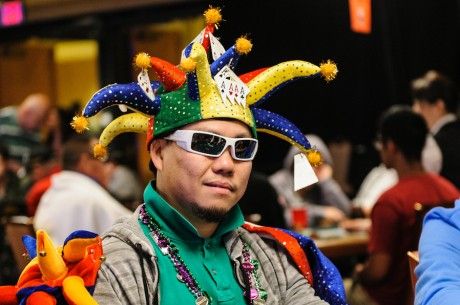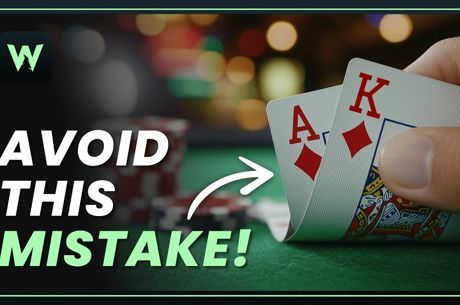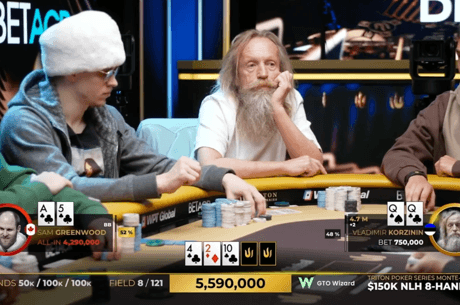Make a World Series of Poker Day 2? Study Those Table Draws

Making Day 2 of a World Series of Poker bracelet event is exciting. You may have some troubling bagging and tagging your chips — I’ve seen many first-timers seal their bag without the slip inside — but if you listen to the dealer carefully, then you should be able to ace the exercise and go get some rest.
Rest is important. Your restart is likely to be in only 11-12 hours, and you want to make sure you get a good night’s sleep. If you’re hungry, then you should grab a quick bite, but try to avoid greasy foods because they can leave you feeling bloated or dissatisfied in the morning. You need nutrients after a long grind, not fatty acids.
A proper sleep will allow you to wake up and grab some breakfast, the most important meal in the day. It will also give you time to study your seat draw.
At the WSOP, Caesars employs a hard-working group of interns who pump out seat draws for every event, every day, posting them under the “Reports” tab for each event on . Posting seat draws online can also save the players some time, letting them know where they’re supposed to go before they arrive at the Rio All-Suite Hotel and Casino.
There is very little direct preparation in poker, particularly in tournaments because we don’t always know against whom we are going to compete. On a Day 1, you’ll sit with a randomly drawn group of individuals, and players will come and go as the day progresses. However, at the start of subsequent days, you know the seven or eight players you are going to sit with ahead of time, and doing a little research can help you in certain spots.
For example, most $1,500 buy-in bracelet events burst the money bubble at the start of Day 2. If you have an average stack and you are anticipating an opportunity to abuse the bubble, you might want to make sure you are playing hands against opponents that will let you get away with aggressive play.
If your table features professional players — that is, players who are looking to finish in the top nine rather than the top 200 — then they are likely to play back at you. Conversely, if none of the players at your table have a profile on Hendon Mob, then maybe they are going to try and fold until the money to secure their first cash.
Researching your upcoming opponents can also provide you with pivotal information that will assist you in certain hands. Such is a lesson even seasoned players are sometimes still learning.
For example, during the 2014 PokerStars Caribbean Adventure, 2012 WSOP Main Event champ Greg Merson told us a story on the PokerNews Podcast about about how he made a mistake prior to Day 5 of the 2013 WSOP Main Event by not asking his friends about Brett Richey, the player who would be sitting on his right to start that day of play.

Merson knew Richey was a pro — after all, his Hendon Mob profile is impressive, and he’s received plenty of airtime on ESPN. But Merson mistakenly thought he was your standard, aggressive young player. Richey also tends to act very quickly at the table, further giving him an aggressive vibe, which encouraged Merson to three-bet shove a little lighter than usual against him because he thought that Richey’s opening range was wide.
Unfortunately for Merson, he was wrong. (That pic above shows Merson shaking Richey's hand after having been eliminated by him.)
“All I had to do was ask someone,” Merson lamented.
Even if the names of your upcoming opponents are unfamiliar to you, throw them into a Google search along with the words “poker” or “hendon mob.” Maybe you’ll unearth a hand history with the player on PokerNews, or perhaps they’ve even played at a televised table that you can watch. Poker is a game of incomplete information, and the more information you attain, the better off you will be.
Don’t let the influx of information make you go crazy, though. There will be situations where even the most detailed preparation will take a back seat to your poker knowledge and instincts, and you make develop a read on a player that differentiates from what other people have told you.
Use the information available to increase your chances of forcing your opponents to make mistakes, but don’t lean on it and ultimately use it as an excuse for why you hit the rail.
Get all the latest PokerNews updates on your social media outlets. on Twitter and find us on both and !








